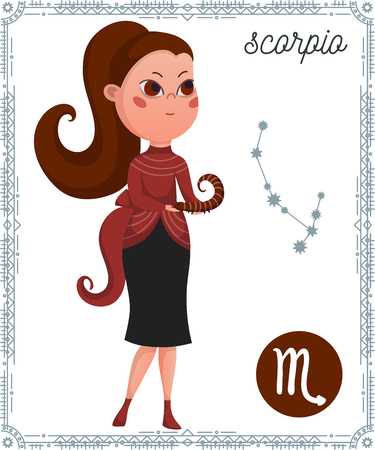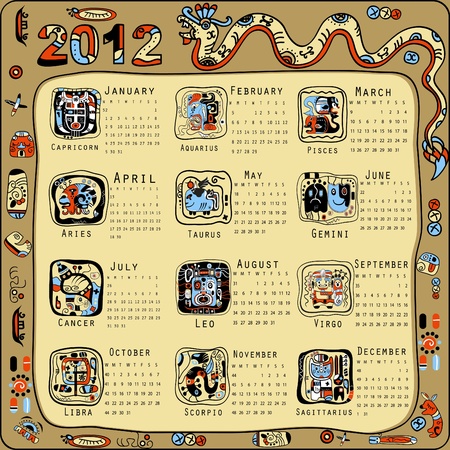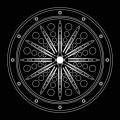Introduction to Birth Charts and Romantic Compatibility
In recent years, astrology has enjoyed a remarkable resurgence across the UK, weaving its way into conversations in coffee shops, group chats, and even dating profiles. At the heart of this renewed fascination lies the birth chart—a unique astrological map based on the date, time, and place of one’s birth. For many Britons, exploring birth charts offers more than a whimsical pastime; it becomes a tool for self-understanding and, increasingly, for navigating romantic connections. This gentle introduction will walk you through the basics of birth charts and how they are believed to influence romantic compatibility, setting the stage for a deeper look at why so many in the UK are turning to the stars for guidance in matters of the heart.
Understanding Birth Chart Components
To understand how birth charts influence romantic compatibility, it’s important to know the key elements that make up a chart. In British astrology circles, conversations often revolve around the “big three”: your sun sign, moon sign, and rising (ascendant) sign. But planets such as Venus and Mars also play a pivotal role in shaping our love lives. Here’s a practical breakdown tailored for a UK audience:
| Component | Role in Relationships | British Example |
|---|---|---|
| Sun Sign | Your core self – the essence of who you are. | A Leo might enjoy being centre stage at a local pub quiz, while a Virgo prefers quiet nights in with a cuppa. |
| Moon Sign | Your emotional needs and responses. | A Cancer moon may crave comfort food and deep chats after a rainy London day. |
| Rising Sign | The impression you give to others; first impressions in dating. | An Aquarius rising could come across as quirky and open-minded, ideal for spontaneous weekend trips to Brighton. |
| Venus | Your approach to love and attraction. | A Taurus Venus might express affection through thoughtful gifts, like tickets to the West End or homemade biscuits. |
| Mars | Your passion and how you pursue romance. | An Aries Mars could be upfront about feelings, perhaps inviting someone for a spontaneous walk along the Thames. |
By considering these components, you can better understand not only yourself but also what you’re seeking in a partner. For example, if your moon sign values emotional security, you might find more compatibility with someone who offers stability rather than excitement. British dating culture, with its blend of tradition and modernity, reflects these astrological influences—whether it’s bonding over shared interests at the pub or finding comfort in familiar routines on chilly evenings. Understanding your birth chart can thus offer practical insights into what truly makes a relationship work in the UK context.

3. Cultural Attitudes Towards Astrology in the UK
Astrology has long held a curious place within British culture, often balancing on the edge between scepticism and fascination. Historically, the UK has prided itself on rational thinking and scientific reasoning, leading many to view astrology with a critical eye. Phrases like “Take it with a pinch of salt” or “It’s just a bit of fun” commonly accompany conversations about star signs and birth charts. However, in recent years, there has been a noticeable shift, particularly among younger generations who are more open to exploring alternative perspectives on love and compatibility.
This cultural landscape means that discussions around romantic compatibility based on birth charts can be both light-hearted and insightful. For some, astrology remains a playful conversation starter at parties or on dating apps—a way to break the ice or bond over shared traits. Yet, there is growing curiosity about how birth charts might genuinely influence relationships. While some people still dismiss astrological insights as mere superstition, others are increasingly willing to use them as tools for self-reflection and understanding in their romantic lives.
The British tendency towards modesty and understatement also influences these conversations. Rather than making bold declarations about destiny, individuals often approach the topic with humour and humility, acknowledging both its limitations and potential wisdom. This nuanced attitude allows astrology—and birth chart compatibility—to be woven into the fabric of modern British dating culture without overshadowing personal choice or rational decision-making. As a result, birth charts have become an accessible resource for those seeking deeper insight into themselves and their partners, all while respecting the quintessentially British value of keeping things grounded.
4. Common Compatibility Myths and Misconceptions
When it comes to astrological compatibility, especially here in the UK, plenty of myths persist—often reinforced by pop culture references and everyday banter. Let’s debunk some of the most popular misconceptions that can cloud our understanding of birth charts and relationships.
Myth 1: Sun Signs Are All That Matter
It’s a classic British pub conversation—“You’re a Leo? I’m a Pisces! We’ll never work.” Yet, relying solely on sun signs is like judging The Great British Bake Off contestants on their first cake alone. Birth charts are far more complex, involving moon signs, rising signs, and planetary placements that reveal deeper emotional patterns and communication styles.
Astrological Factors Beyond Sun Signs
| Factor | What It Reveals | Example in Relationships |
|---|---|---|
| Moon Sign | Emotional needs | A Taurus Moon may crave stability, while a Gemini Moon seeks variety |
| Venus Placement | Love language & values | Venus in Libra enjoys harmony; Venus in Aries prefers excitement |
| Mars Placement | How you handle conflict & passion | Mars in Cancer avoids confrontation; Mars in Scorpio faces it head-on |
Myth 2: Opposites Always Attract—or Repel
The idea that opposites attract is as familiar as hearing “fancy a cuppa?” But astrological opposites (like Aries and Libra) can either complement or challenge one another, depending on other chart factors. It’s not as straightforward as EastEnders drama—real compatibility involves nuance and compromise.
Myth 3: Astrology Predicts Relationship Fate
A common belief, particularly when Mercury is retrograde and there’s a collective groan across social media, is that astrology determines destiny. In truth, birth charts offer guidance rather than guarantees. As with navigating the unpredictable British weather, awareness helps you prepare but doesn’t dictate your entire journey.
Everyday UK Beliefs vs. Astrological Reality
| Popular Saying/Belief | Astrological Reality |
|---|---|
| “Star-crossed lovers” | No pairing is doomed from the start; every chart has strengths and challenges to explore. |
| “All Leos are dramatic” | Personality is shaped by the whole chart—not just one sign. |
| “Astrology is for hopeless romantics” | Birth charts can offer practical tools for self-understanding and better communication. |
The next time someone at the local chippy blames their relationship woes on being a “typical Scorpio,” remember—astrological compatibility is much more layered than any single sign or stereotype suggests. By looking beyond surface-level myths, couples can use birth charts as a resource for empathy and growth, rather than an excuse or limitation.
5. Practical Steps: Using Birth Charts for Relationship Insight
Understanding your partner through their birth chart can be enlightening, but it’s essential to approach this process with care, especially within the context of UK culture, which often values privacy and understated communication. Here are some practical steps to respectfully and effectively use birth chart information to gain deeper relationship insight.
Start with Openness and Consent
Before delving into astrological details, ensure your partner is comfortable discussing birth charts. In the UK, it’s common to appreciate personal boundaries and autonomy. Initiate a gentle conversation about astrology, perhaps by sharing your own interest first and asking if they would like to explore together.
Frame Astrology as a Tool, Not a Verdict
Emphasise that birth charts are not absolute judgements but rather tools for self-awareness and understanding. This approach aligns with the British tendency towards pragmatism and scepticism—focus on using astrology as a way to open discussion, not dictate outcomes or assign blame.
Encourage Mutual Sharing
Relationship insight grows when both partners feel heard. Invite your partner to share their thoughts on their chart and yours. Listen actively and validate their experiences; respectful listening is highly valued in UK culture and helps foster trust.
Use Insights for Better Communication
Apply what you learn from each other’s birth charts to improve communication styles. For example, if your partner’s chart suggests they prefer directness or subtlety, adapt your approach accordingly. Always seek clarification rather than making assumptions based solely on astrological placements.
Maintain Respectful Boundaries
Avoid using birth chart information as ammunition in disagreements or as a means of control. Instead, treat these insights as opportunities for empathy. If sensitive topics arise, acknowledge them gently and respect your partner’s comfort level—this sensitivity is especially important in maintaining harmony within British relationships.
Reflect Together and Revisit Regularly
As you both grow individually and as a couple, revisit your charts together periodically. Ask open-ended questions like “Does this still feel accurate for you?” or “How have we changed since we last looked at this?” This keeps the conversation dynamic and ensures that astrological insights remain supportive rather than prescriptive.
By integrating these practical steps, you can use birth charts as a respectful bridge to deeper understanding—always prioritising clear communication and mutual respect in line with UK relationship norms.
6. Summary and Emotional Reflection
As we wrap up our exploration of how birth charts can influence romantic compatibility from a UK perspective, it’s important to pause for a moment of emotional reflection. Understanding astrological influences is not about rigidly labelling ourselves or our partners, but rather about fostering deeper self-awareness and more mindful connections. In the UK, where relationships are often shaped by both tradition and a modern openness, birth charts can offer useful insights—so long as we approach them with curiosity rather than expectation.
It’s perfectly normal to seek answers or reassurance when navigating love and partnership. However, remember that astrology is only one tool among many. Your ability to communicate, empathise, and adapt remains at the heart of any successful relationship. By using your birth chart as a guide, you can gain a better understanding of your emotional needs and patterns, helping you approach romance with greater confidence and compassion.
Ultimately, the healthiest relationships balance insight with realism. The stars may highlight potential strengths or challenges, but the choices you make and the effort you invest are what truly shape your romantic journey. As you move forward, embrace self-reflection and keep an open mind—whether you’re sipping tea in a cosy London café or strolling along a windswept Scottish beach. Let your birth chart inspire thoughtful conversations rather than dictate your destiny, trusting that genuine connection comes from mutual respect, patience, and shared growth.


